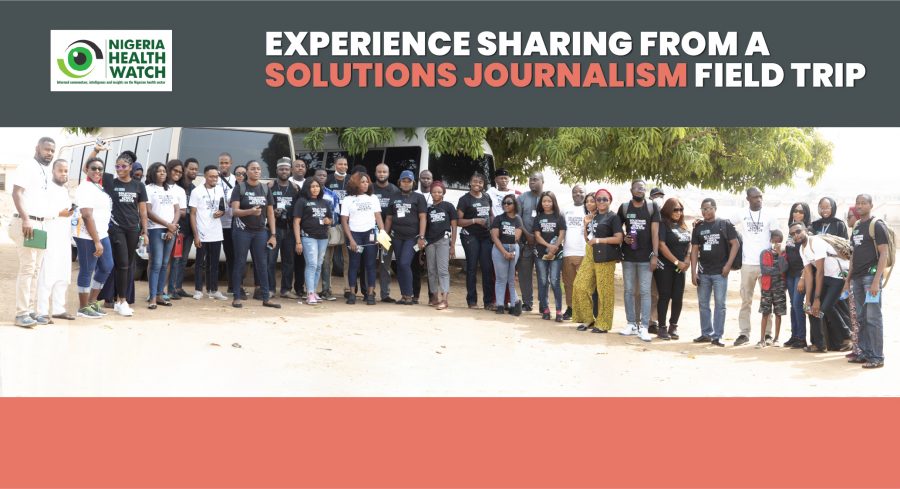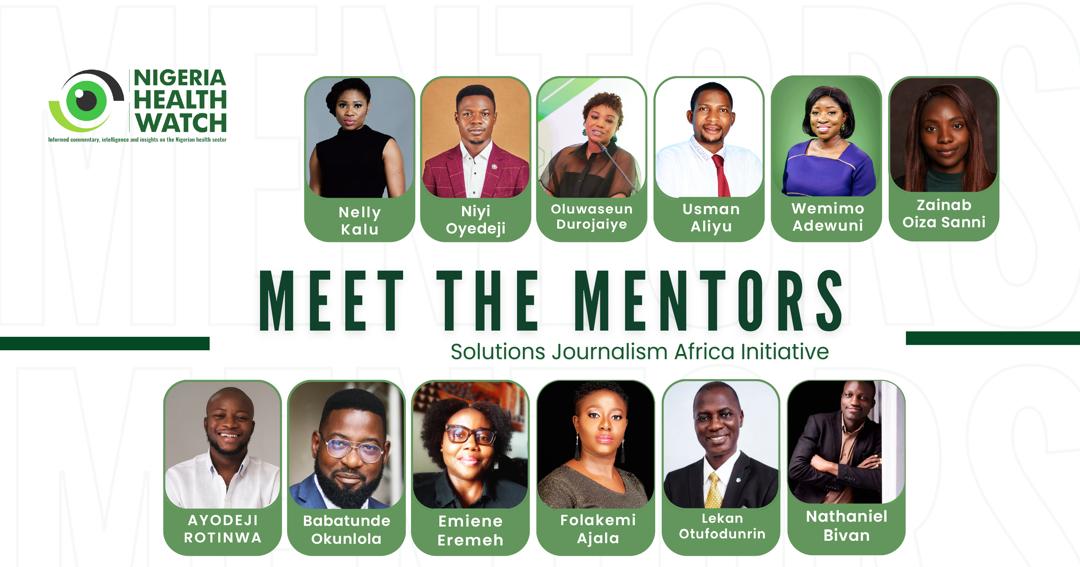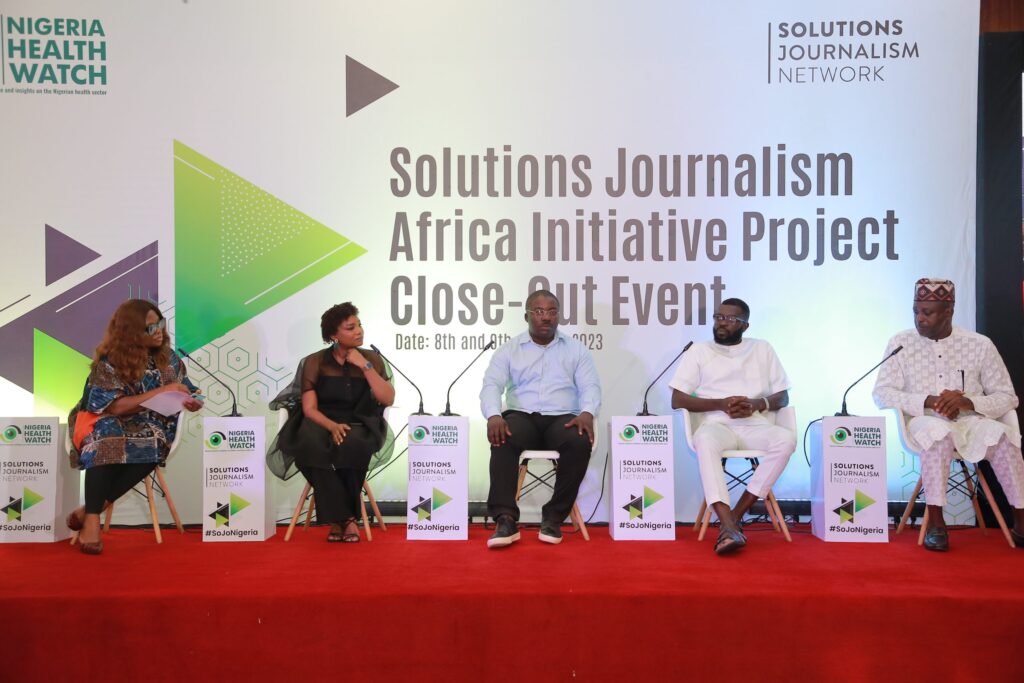Until about 2022, Solutions reporting as an approach to journalism although practiced by some, was not adopted by many journalists in Nigeria. Only a few journalists who participated in the LEDE Journalism fellowship or early adopters knew the proposition of the approach to reporting social issues. Many journalists misconceived it as hero-praising, public relations reporting which is atypical to the usual investigative and accountability reporting practice.
This was also the challenge faced by the founders of the Solutions Journalism Network in the United States when they started advocating for the adoption of solutions-focused reporting, an approach to journalism that tells the WHOLE story.
After gaining much ground in the US and with a plan to expand to Africa, the Solutions Journalism Network in 2021 launched the Solutions Journalism Africa Initiative (SJAI) Project. Two African organisations were the conveyors of the SoJo evangelism in Africa; Science Africa in Kenya and Nigeria Health Watch in Nigeria (NHW). They championed the training and support for fellows and newsrooms to produce solutions journalism works while advocating for the adoption of Sojo by even more media professionals.
Nigeria Health Watch, a health communications and advocacy organisation/non-profit, led the project in Nigeria and employed various creative initiatives to train and support journalists and newsrooms in adopting solutions journalism. To propagate the knowledge of Sojo and encourage the adoption of the WHOLE Story approach, NHW also facilitated networking and collaboration between solutions journalists across newsrooms to produce through physical and virtual engagements.
During the initiative’s first phase in 2021, NHW executed three cohorts of newsroom and freelance journalists training. It directly reached over 90 journalists across 30 newsrooms and produced over 250 solutions journalism stories.
In its ongoing second phase of the initiative, building on the recorded success, the focus is on expanding Sojo’s community of practice in Nigeria by engaging with more journalists and newsrooms, educators and training institutions, and media professionals.
To propagate SoJo, the organisation also hosted physical and virtual training for students, lecturers, and creative content creators, partnering with key journalism platform leaders and campus journalists’ unions while also supporting newsrooms like Social Voice, News Agency of Nigeria (NAN), SolutionsPaper, KISS FM, and PrimeProgress, among many others, to establish editorial frameworks for front-line solutions journalism.
Creative and strategic events like Sojo Twitter Conversation, Virtual Check-ins with newsrooms and teams, Sojo Meetups and Sojo Hangouts in several states across the six geopolitical zones in Nigeria contributed to the rapid adoption of Solutions journalism by many journalists in Nigeria. Through its community and networks, NHW has also facilitated knowledge sessions between journalists and impact makers in society, and support step-down training initiatives of fellows of the initiatives.

Combining traditional training methods and creative use of virtual and physical events is instrumental to the project’s success. Traditional projects will only facilitate formal seminars and workshops without following up or supporting journalists’ active newsroom efforts to put the knowledge to good use.
In an interview with the project lead in Nigeria, Chibuike Alagboso told Media Career Development Network that the Sojo Meetup which took solutions journalism training to several strategic hotspots of journalists across the six geopolitical zones in Nigeria was birthed during one of the Check-ins with newsrooms he had with some participating journalists of the initiative.
He then took it as a workable idea to his team, who then reached out to journalists who had earlier been brought together from training and fellowship programs in Abuja to ask if they would be open to informal training meetups in their regions. The meetup facilitated refreshers for formally trained journalists and introduced even more journalists who had never been trained on Sojo.
Most of these new journalists were young early career and campus reporters who were eager to join in the train of solutions reporting. From these meetups new solutions and reports ideas were birthed, refined and pitched and some of them eventually got published adding to the number of solutions reports produced.
Several critical and underreported issues have been explored through the lens of solutions reporting through the SJAI including health solutions, education, religion, infrastructure, tech and inclusion stories.
READ ALSO: Nigeria Health Watch boosts Solutions Journalism reporting in Nigeria
Another crucial aspect of the initiative was the encouragement and facilitation of collaborative story projects. The online community created for the project serve as an effective networking platform for solutions journalists who have varying ideas to explore. These platforms serve as a continuous engagement forum for participants, idea sounding boards and even a place to seek connections and network between reporters, editors and publishers. Journalists who have questions, doubts to be clarified, requests for sources or leads put on the group and get prompt feedback.
From this community of solutions, journalists cross-newsrooms and cross-border collaborative story projects have been published.
Published stories are also shared in the groups for analysis and feedback which further develops the skills and understanding of journalists about solutions reporting.
The SJAI Project has also birthed other initiatives like the Solutions Journalism Educators Network, a collective of educators in tertiary institutions across West Africa who are working towards popular teaching and adoption of Solutions journalism in the region, and The Solutions Journalism Plus training program by the Initiative for Sound Education, Relationship and Health in collaboration with Abito Citta an organisation of Dr Rasheed Adebiyi one of the Sojo Fellows.
In the second phase of the Solutions Journalism Africa Initiative project, implemented with support from the Solutions Journalism Network (SJN) USA selected newsrooms and community radio stations interested and committed to leveraging solutions journalism to drive discussions and meaningful policy engagement and change have been trained and supported by dedicated coaches. The coaches have supported the newsrooms to produce impactful stories focused on important social issues.

Journalists and media organisations are appreciative of the training and support they have received from NHW which they said have deepened solutions journalism practice in the country.


